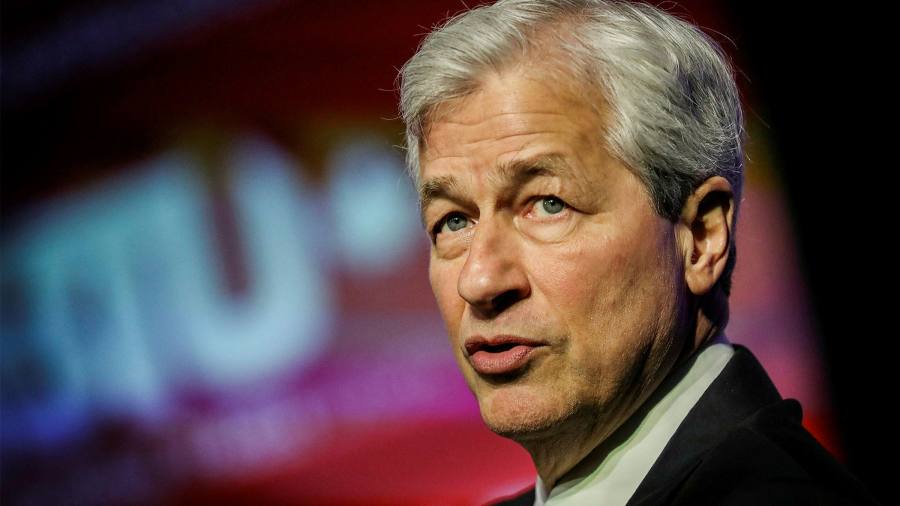[ad_1]
The writer is author of ‘How to Be a Better Leader’ and is a visiting professor at City University Business School
“First catch your hare†runs the advice to chefs planning an ambitious dish. Something similar could be said to business leaders aiming to become “purpose-drivenâ€: first find your purpose.
A purpose or, better, Purpose, is rapidly becoming an object of desire in boardrooms. Ever since the US Business Roundtable (BRT) published its revised statement on the purpose of a corporation in August 2019Â the discussion around the topic has taken on a new urgency.
The theme for last year’s World Economic Forum in Davos was “stakeholders for a cohesive and sustainable worldâ€, a heading which echoed the BRT’s view. In the UK, the British Academy’s research programme into the future of the corporation recently hosted an online summit to look at corporate purpose. If capitalism needs a “reset†then what better way to do it than with renewed Purpose?
Sceptics inevitably raise at least one eyebrow at this. In a book published last year called The Purpose Myth, Charlotte Cramer argued it was unlikely that a job in a corporation would meet most people’s need for purpose in their lives.
Companies may make grandiose claims about their purpose: Philip Morris’s desire to “make history†and “change the world†with a “smoke-free†(but not tobacco-free) future, Facebook’s aim to “build community†and “bring the world closer together†(except in Australia?), Airbnb’s “belongingâ€, and so on. Building a personal purpose project, becoming a side-hustle social entrepreneur, Cramer says, is likely to be more meaningful than toiling to fulfil lofty (and questionable) corporate goals.
The same sceptics might note that signatories to the BRT statement have not necessarily shown heightened awareness of all their stakeholders’ needs. Amazon has resisted attempts by employees to win union recognition and has brought in a consultant famed for maintaining “union free workplacesâ€. The board of JPMorgan Chase recently confirmed that stockholders come first and that other stakeholders have to wait in line. And yet its chief executive, Jamie Dimon, was a driving force behind the BRT statement.
Others have engaged more positively with the purpose agenda. As Ed Miliband, shadow business secretary in the UK Labour party, wrote in the FT recently: “Business leaders tell me they see this focus on purpose as the best strategy for both profitability and long-term success.â€
The debate has certainly evolved. A decade ago a leading figure described the contrast between wealth creators and asset strippers, the “producers†and the “predatorsâ€. “Producers train, invest, invent, sell . . . Predators are just interested in the fast buck, taking what they can out of the business,†this speaker said.
The alert reader may have spotted that the speaker from 2011 was the selfsame Ed Miliband. Miliband’s former speech writer, Marc Stears, has just published a book called Out of the Ordinary, an elegant essay on the need to recognise the value in down-to-earth, small scale activity as well as the grand scheme.
The real test of whether a corporate leadership’s message is getting through is if front-line employees understand it. Abstraction may not get us very far. As writer Charles Handy told me the other day: “It’s the capital P [in Purpose] that I worry about.â€
The recent British Academy summit threw up some other forceful observations. Leo Strine, former chief justice of the Delaware supreme court, said employees should be added as an extra E in ESG measurement. “No constituency cares more about the financial viability of the business than the workers,†he said.
Raghuram Rajan, a professor at the University of Chicago Booth School of Business and former governor of the Reserve Bank of India, expressed scepticism that a stakeholder approach would lead to better results. He also called on government to right wrongs, rather than business: “Corporate activism is not an answer to government paralysis,†he said.
The debate continues. Jerry Davis, professor at the Michigan Ross business school, expressed his fears bluntly in a recent paper: “Purpose cannot solve the problem of shareholder primacy because shareholder capitalism is inherently corrupting of purpose,†he wrote. “When purpose and shareholder value get into a boxing ring, I will bet on shareholder value every time.â€
In 2006, Andrew Glyn, a fellow of Corpus Christi College, Oxford, published Capitalism Unleashed, a book which anticipated the financial crisis, sluggish productivity growth, increased inequality and further pay excesses at the top.
Glyn was a hugely respected political economist, who died far too young in 2007. Among his former students are the FT’s Martin Wolf, the writer Vikram Seth, and Marc Stears – as well as David Miliband, the former British foreign secretary, and his brother, Ed.
Andrew Hill is away
[ad_2]
Source link





